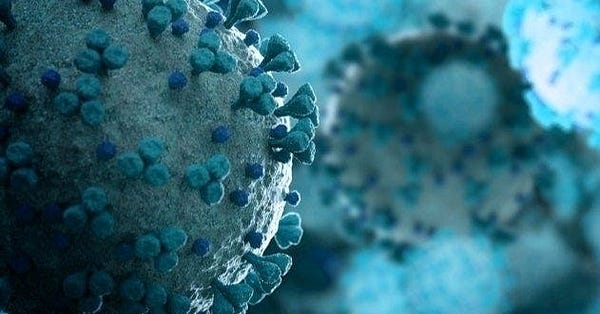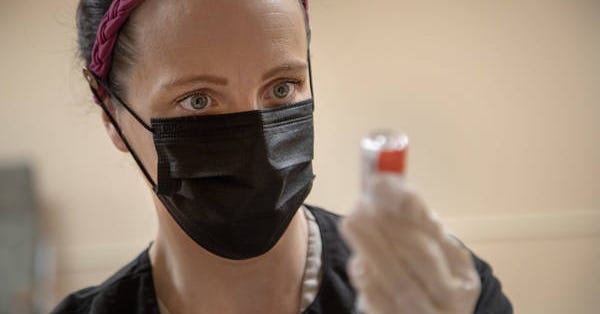In 1914, New York City’s Commissioner of Health Herman M. Biggs remarked that “public health is purchasable” and that “within natural limitations, a community can determine its own death rate.” - https://www.ncbi.nlm.nih.gov/books/NBK201025/
These words should give us all pause right about now…
Aptly named, NACCHO Voice is the official blog of the National Association of City and County Health Officials. And it is better represented at our Board of Health meetings than any of us are.
It’s not supposed to be like this, but even our local representatives are operating “under the influence.”
I started attending local Board of Health meetings in 2019, when quotes from BOH members supporting legislation to remove religious exemptions in NJ were regularly being featured in my local newspapers. It felt like these folks were stepping out of their lane and exerting undue influence in my community and I wanted to know why.
It didn’t make sense. Our community was highly vaccinated (95% of school children were fully-vaccinated) - well over the threshold for “herd immunity” if you believed such a thing could be acquired via vaccines - and very few families even used religious exemptions. Furthermore, the laws in place already included a provision that unvaccinated children would be removed from public school settings in the event of an outbreak. Never mind the absence of any science to support the notion that vaccine compliance will ever equate to public health safety.
Why were these people pushing so hard for legislation to remove religious exemptions when the public health benefit of doing so was nonexistent?
In a Letter to the Editor, Dr. Lawrence Budnick, then BOH President, failed to even acknowledge the religious rights that were at stake and simply described the bill as “legislation to increase immunizations among children in the state.”


His letter illustrated the key problem with allowing public health officials - who are laser focused on getting needles in arms - to essentially lobby and publicly support legislation that would remove the rights of citizens.
To support his position, he included, not studies, but talking points straight from the CDC’s “Need to Know” info for parents.
At the first meeting I attended (accompanying a friend who wanted to make a public comment), board members seemed unprepared to address any information or concerns outside of the standard talking points. When the topics of viral strains or shedding were brought up, they didn’t seem to know that MMR was a live virus vaccine.
And then I learned that the director of my local health department, the one who did most of the talking at the meetings, was the president of the New Jersey Association of County and City Health Officials (NJACCHO)
“We’re seeing an increase every year in the number of religious exemptions,” said Megan Avallone, director of the Westfield Regional Health Department. “We’re seeing many times that parents are using a philosophical exemption and are calling it a religious exemption.”
Avallone, who is the president of the New Jersey Association of County and City Health Officials, said the measure is common-sense. In addition to supporting public health, it means the government would not have to judge what religious exemptions are allowed since there would be no exemptions if the law is approved, she noted.
“If you’re in favor of these new regulations, you need to make your voice heard,” Avallone said.
If you live in NJ, you probably know that, despite their efforts, thousands of parents showed up in Trenton and managed to defeat the bill. (Phew!)
But the struggle isn’t over in NJ. Far from it.
In 2021, when a group of health freedom advocates created NJPHIPAC (NJ Public Health Innovation Political Action Committee), Avallone proposed “creating a pledge for the State Legislature, that they will not accept funding from any anti-vaccination groups.”
For clarity, NJPHIPAC’s stated mission is “to protect and strengthen the constitutionally guaranteed and fundamental rights of New Jersey residents to make all medical decisions for themselves and their families without coercion or undue constraint.”
Given this, pro-choice would be a more accurate description.
So why have public health authorities become so anti-choice?
I’ve written about my concerns regarding the hijacking of local health departments before…
In recent years, our local health boards have become heavily invested in advancing legislation and imposing ordinances geared toward restricting the rights of citizens in the name of public health. This is particularly true when it comes to vaccine mandates and our right to refuse. Aggressive top-down vaccination campaigns have hijacked public health discussions, making it increasingly difficult for public voices to be heard.
Agencies like the National Association of City and County Health Officials (NACCHO) have appropriated our public health departments to advance CDC agendas and drawn them further from the needs of our communities. Informed and influenced by regulatory agencies and special interest groups that do not accurately reflect the needs of communities, it seems as though our health departments are no longer empowered to engage in problem-solving at a local level.
For example, in 2019 in my home state, the New Jersey Association of City and County Health Officials (NJACCHO) distributed $2.3 million[i] in tax-payer supported funding to local health agencies to "strengthen communicable disease response." The Westfield Regional Board of Health (BOH) received $95,000, which it used to purchase a refrigerated truck for vaccination distribution.
https://greenmedinfo.com/blog/vaccine-discussion-all-people-open-letter
A refrigerated truck for vaccine distribution? What foresight!
Since then, the push has only gotten more aggressive. In 2020, the NJDOH invested $32.3 million of the monies it received from the CDC “to carry out critical local public health efforts such as case contract tracing, providing guidance to long-term care facilities, standing up community testing sites, ensuring individuals have a safe place to quarantine and a variety of other COVID-19 related activities.”
Many would argue it wasn’t money well spent.


Local Government or Local Application of Big Government?
A big part of the problem is that the funding comes with strings attached. It’s conditional. And the conditions generally come from the CDC. So, once a local board accepts the funding, the public health “solutions” are no longer local.
To be clear, the BOH members in my town volunteer their time and have been mostly cordial and polite, even as I show up repeatedly to challenge their assertions and ask inconvenient questions. As far as I can tell, they really believe in the work they’re doing. But my observations also suggest that the agendas, narratives and public statements coming out of our health departments are heavily influenced, if not directly inserted, by the CDC and NACCHO (National Association of City and County Health Officials).
NACCHO’s mission is clear. Here’s how the organization describes itself:
As the national voice for Local Health Departments, NACCHO serves a critical role in Washington. All of NACCHO’s advocacy efforts focus on informing policymakers of the critical role that local health departments play in keeping our communities healthy and safe.
NACCHO offers funding opportunities, social media toolkits, curriculums and webinars - everything a busy volunteer might need to run a local health department. This is likely why your local health department newsletter feels so canned (and similar to those distributed throughout the country.) NACCHO provides a local public health script at your fingertips.
And who’s writing the script for “the national voice for Local Health Departments”? That would be the CDC.
A glimpse at this NACCHO job description provides additional insights into the role of this organization:
If it’s not already clear, NACCHO brings politics into the local public health arena. Notably, the U.S. Conference of Mayors is always represented on its governing board. And if your Board of Health is like mine, members were appointed by your mayor.
In a politically charged climate, the potential for an impenetrable groupthink is very real. So it makes sense to examine who is on your Board of Health representing you… and who else they may be representing.
Other Local Public Health “Influencers”
As it turns out, my BOH members have ties to the following organizations:
Regenron - a pharmaceutical company that makes monoclonal antibodies for the treatment of COVID
GenMed - a pharmaceutical company that develops antibody-based therapeutics (and is partnering with vaccine-makers BioNtech, Janssen Biotech, Novartis on a number of treatments)
Atlantic Health System - offering COVID vaccination/testing, including children under 5
Care Station Medical Group - Urgent care and COVID vaccination and testing site
And each of these people was selected by a mayor who is also a founding member of Plum Alley Investments, a venture platform with a focus on AI educational and medical solutions and biotechnology. (This has left some residents wondering if a number of recent changes in town represent its transformation into a model smart city.)
Add to that a climate that punishes health care practitioners who speak outside the box, and the struggle for honest discourse and deliberation becomes very real.
So when your BOH asserts that all COVID shots (or any shots for that matter) are effective, consider what they are basing those opinions on… and how free they are to express any reservations they might have.


In Burlington County, it’s arguably worse. Assemblyman Herb Conaway, known for marching in lockstep with BigPharma agenda, is an MD, the chair of NJ’s Assembly Health Committee AND the Burlington County Director of Public Health (an appointment that was approved in a closed door meeting with a panel consisting of the government’s administrator, director of human resources, department heads, freeholder director and two additional freeholders.)
Conaway once famously asserted “Either you believe that the government can practice medicine or you don’t.” But that was 2016, when he was blocking legislation written to limit opioid abuse. When it came to vaccination, he shifted to “suck it up and go and get your flu shot.”
And then came the pandemic…
… to put the whole agenda on steroids.


Here’s Conaway in a NJDOH panel discussion on the “importance of getting your COVID-19 booster shot and how you can help create a safer, healthier New Jersey.”
During the COVID era, EVERYONE got in on the aggressive vaccine-pushing.
In August 2020, before there was a vaccine, a National Governors Association memo asserted,
While public health agencies will likely take the lead on any mass dispensing effort, the sheer scope and size of a COVID-19 vaccination campaign, as well as its implications for reopening, will require partnerships from stakeholders across multiple governmental and non-governmental agencies….
…States will need to prepare for engagement and communications approaches to get stakeholder and broad community buy-in to the immunization approach, address issues related to vaccine hesitancy, and legal challenges related to liability, the scope of practice, and federal pre-emption.
The NGA even suggested that “State emergency laws may be a helpful tool for potential expansions of existing scopes of practice for vaccine administration.”
I wish I could say the rest was history… but it’s still happening.
All of this offers some insight into the politics, bias and urgency that has been woven into our public health culture and is influencing the way we make laws and follow orders.
Can we revisit this?
Can we change it?
Please? For our kids?








Phenomenal digging.
Could you post information on how to find the local public health boards - city and county - so we can attend? Public health boards are really a 4th branch of government which the executive, legislative and judicial branches all defer to.